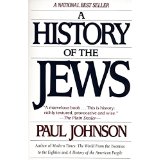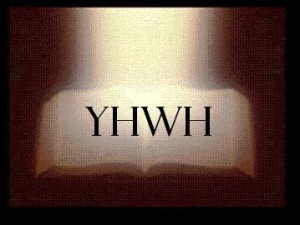[Originally posted in 2012, when we started this website. This article is part of a doctoral dissertation entitled, Dramatic Ironies and Illusions in the Book of Exodus: A Profile of a Nation’s Identity, Responsibility, and Destiny, written by Sinaite ELZ@SK6.]
——————-
Dramatic Ironies
The contradiction between what one of the characters believes to be true and what the action or plot shows to be true is the typical function of dramatic irony.
Frequently, what the character thinks turns out to be true in quite a different way from what he originally meant. Reversal of intention is a form of dramatic irony in which a character attempts to accomplish one thing and actually accomplishes the opposite.
The Reversal of Intention as Seen in the Pharaoh and His Plan of Genocide
Both the first and second policy of the Pharaoh failed. They were intended to make the Israelites bitter with bondage. Clearly demonstrated is the Egyptian’s mind that either they save or destroy the children, or they affect for good or evil the whole destiny of a people. By employing two Egyptian midwives to destroy the Hebrew children at birth, Shiprah and Puah dared to disobey the royal edict out of divine fear.
The drastic means taken to preventIsrael’s increase fired the inventive genius of the victims. Moses’ parents put him in a basket of papyrus, painted it with bitumen, and floated it among the flags of the bank of theNile. Pharaoh’s daughter, on a bathing visit, found it and rescued the child; and accepted as a wet nurse, a Hebrew woman, in reality his own mother, cleverly suggested by the baby’s sister, who was standing near the river. Thus, nursed daily by his own mother as long asnecessary, she left him to be reared in the royal palace of Egypt as the adopted son of Pharaoh’s daughter.
The Irony of Situation in the Rescue of Moses
Moses’ mother, by faith, set him afloat in the Nile River to send him to safety and give him a chance to live. By physical standards, it is not at all a safe place. The Nile Rivercould be fraught with danger, full of harmful animals and other life-threatening perils. In an incredibly ironic twist, the very ruler who sought the death of Hebrew sons took Moses into his court as a son. It turned out that the daughter of their greatest enemy was inclined to preserve the existence of the one who was to give the greatest blow on the national life of Egypt.
The river that was supposed to be a place of death for male Israelite children became a place of life for Moses. Tradition says that the Pharaoh’s daughter who found Moses was named Thermoutis. The outcome was the rather amusing situation wherein the royal treasury of Egypt paid money to a mother to raise her own son; while actually Pharaoh had decreed that no such children should live.
The Irony of Moses’ Perception of Self and Divine Revelation
The same dramatic irony could be applied to Moses in his human evaluation of himself, but his self-realization came as a result of divine revelation. Moses, the servant of the Lord, had a pedigreed education. He was raised as a son in the palace of the Pharaoh of Egypt. Egypt was the most powerful nation of the world of that day and possessed the most advanced civilization. The Bible notes that Moses was “learned in all the wisdom of the Egyptians, and was mighty in words and in deeds” (Acts 7:22). Since Moses was familiar with Egyptian thought, it would be more reasonable that, having been trained in Egypt, he would propagate Egyptian beliefs. Students are normally propagators of the teaching of the instructors and institutions which trained them.
It is amazing, therefore, that although Egyptian cosmogony taught that the earth came from the egg, Moses declared, “In the beginning God created the heaven and the earth” (Genesis 1:1). And, although Egyptian astronomy taught that the earth gave light to the sun, Moses declared: “And God made two great lights; the greater light to rule the day, and the lesser light to rule the night: he made the star also. And God set them in the firmament to give light upon the earth” (Genesis 1:16-17). And, notwithstanding the Egyptian anthropology, which said man came from worms along the Nile, Moses declared: “And the LORD God formed man of the dust of the ground, and breathed into his nostrils the breath of life; and man became a living soul” (Genesis 2:7). Moses knew what the Egyptian scholars did not know, not because he was a scientist ahead of his time, but because the Egyptian world-view was based upon flawed reasoning of man, and his was based upon direct revelation from God.
Rosenthal (2001) noted the Hindu thought about the earth rested upon a turtle which, in turn, rested upon the back of an elephant. He also stated that the Greeks, whose philosophy is often studied and admired, believed the earth was held upon the shoulders of the giant Atlas. And, the Egyptians thought the earth sat upon five great pillars.
In amazing and marked contrast, Rosenthal pointed out that the earliest written book of the Bible declares, “He (God) hangeth the earth upon nothing” (Job 26:7). Job knew what it would take other men thousands of years to find out – not because he was a great thinker, but because God revealed it to him.
Moses’ Misconception of a Deliverer
The man, who as a self-appointed deliverer, rushed to the rescue of his countrymen. His imminent consequence drained him of all human self-sufficiency. He became modest and humble, meekly dependent upon God’s empowering. When he was asked to fulfill the call of the Lord, he objected to his fitness by presenting his timidity and lack of speech. What Moses thinks about his role as deliverer of his people turns out to be true in quite a different way. What he originally meant was to be the deliverer in his capacity as a prince of Egypt. On the contrary, he accomplished his role after having been equipped as a servant of God.
The Contrasting Impressions of the Burning Bush
The book of Exodus states the hour that God spoke to Moses within a burning bush. The irony of this event shows the contrast between what appears to be true and what really is true. It was a desert area; the bush was dry and sapless. Everything normal and natural argued for the speedy consumption of that thorn bush. Yet the truth of God’s presence is manifested in something out of the ordinary. Moses’ attention was arrested by the recognition of divine intervention.
The Dramatic Irony of God’s Election
The Hebrews, who among all races, was chosen to be the people of God. They were a motley group of unorganized and uneducated slaves. It is amazing to note of the selection of God of a little nation. The same feeble and oppressed people in a tiny territory would later show their great impact on the entire world which is out of proportion to its size. Egypt had spoiled Israel by forced labor and now Israel was to spoil Egypt when the people were told by Moses to ask jewels of their captors. The Israelites, having asked of their Egyptian neighbors jewels of silver and gold which they were quite ready to grant and left in haste with such quantities as to have despoiled the Egyptians, was a perfectly legitimate method in that day of treating one’s enemies. In Exodus, Moses declared that God spoke all these words: I am the Lord thy God, which have brought thee out of Egypt, out of the house of bondage….And they know that I am the Lord their God, that brought them forth out of Egypt, that I may dwell among them; I am the Lord their God (Exodus 20:2; 29:46).
His complete control over nature and man is adequately implied in the statement. The very existence of the nation was on account of this miraculous event. He used the weak of the world, the Hebrew slaves, in fighting the injustice of the strong, the Egyptian empire, to accomplish his purpose.
The Ironic Twist of a Hopeful Journey
The great exodus, as the scene of more than a million and a half slaves with their possessions marching out of Egypt is insanity by human standards. The journey had started with such hopes and glad songs as journeys do. The people started off this chapter of their lives out of bondage not expecting to wander in the wilderness. The long brutal slave days were over and they were on the march toward God’s Promised Land. But reality came. Contrary to all expectations, a long, difficult and dangerous journey lay between them and the Promised Land. In fact, most of them would die in that foreboding wilderness.
The Irony of a Religious and Transition Crisis or Passage Exhibited at Mount Sinai
The Hebrews learned the new style of life that would mark them as God’s people. The code and covenant they received were not merely part of a mid-crisis reorientation. It was during this time that the motley group began to understand its new identity as the people of God. Yet at the very time Moses was receiving these laws on Mount Sinai, his people were growing uncertain; under the leadership of Aaron, they were so far as to construct the image of another god. Thus, the entire sojourn in the desert was a time of doubt, hesitation, and failure.
ELZ@S6K
In Memoriam . . .















